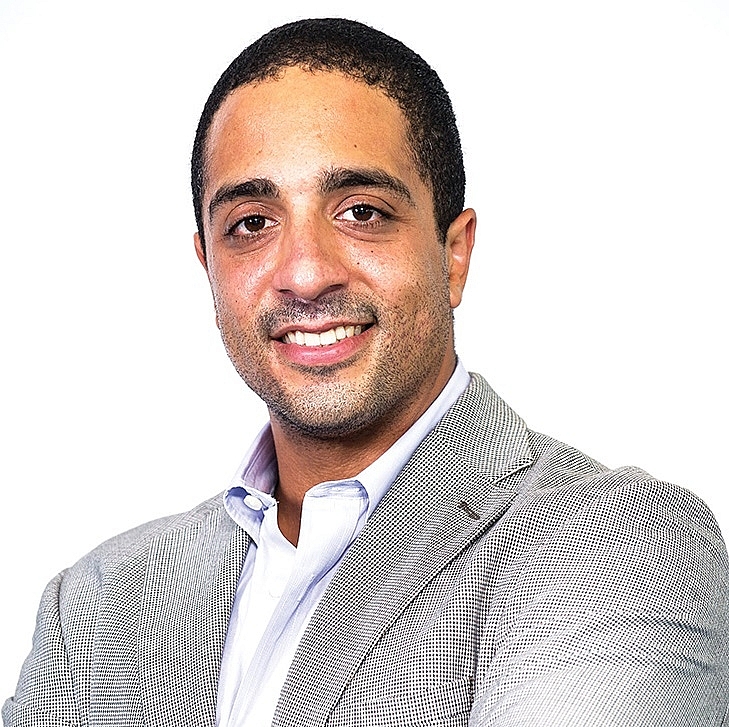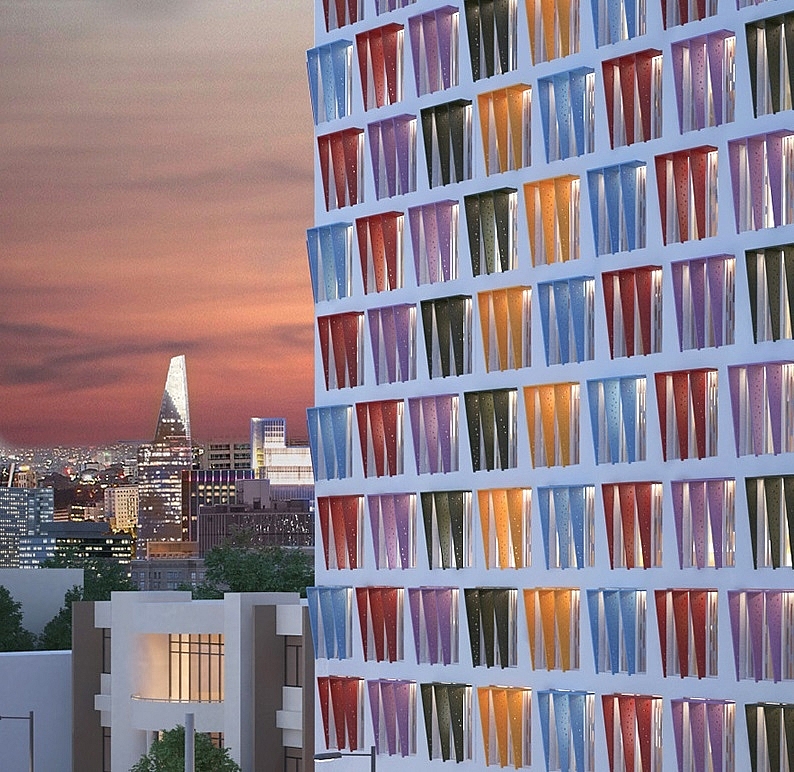Quality to trump alleged slowdown
 |
| Michael Piro, chief operating officer of Indochina Capital |
The Vietnamese real estate market is looking back on a year of ups and downs. How would you comment on the market movements?
The few past years were of exceptional performance and I would not categorise 2019 as “up and down”. Residential sales through our real estate brokerage arm Indochina Properties were strong on a consistent basis. The hospitality sector continues to perform well and is growing quite significantly. We are seeing strong growth in logistics and warehousing, too.
Overall, the picture is not completely rosy, but I think it has been a healthy year for real estate and if you are a reasonably sophisticated, professional developer, you should have done okay. I still see a lot of momentum in this market.
Vietnam is going through some tightening to the regulatory and approval regime surrounding real estate, slowing down supply. However, this is an opportunity to clear out issues in the industry, and the government has been putting a lot of effort into doing so. We have seen good supply come to the market in the previous 36-48 months, so having things slow down a little, letting supply tighten up, and letting the market absorb what is out there is a good thing.
The premium property segment has changed much recently, with a slowdown on both the supply and demand side. How do you see this?
If you look at the premium property segment, the market is obviously characterised by higher barriers to entry. You need a better site, good location, typically you need to spend more on design and other related soft costs incurred in preparing the development. When you carry out the construction and the marketing of the project, you are bound to spend more. However, the market rewards developers who deliver on commitments of quality, location, and great design.
The market recognises these developers, and they continue to buy from them. We see consistent performance by those who display attention to detail and quality.
We have to consider two markets for the luxury segment: the local market and the foreign market. Foreigners are allowed to own up to 30 per cent of a typical condominium project. This 30 per cent is selling much faster than the remaining 70. We are seeing enormous demand from foreign investors: they see that Vietnamese real estate is still trading at a 10th to 15-20th of other key markets in Asia.
On the other hand, local investors are getting more sophisticated, prudent, and careful. We no longer see flocks of local buyers buying up and selling projects over the weekend, they have been replaced with sophisticated, proven buyers doing detailed research before making a long-term investment decision.
It is not that the market is not as strong as it once was – the economy is still going strong: people’s income is improving, interest rates are still at an acceptable level. It is more that the market is getting a bearing on where the values should be and which developers are the right ones with many new types of products and offerings from new developers. In the long-term, the right projects will continue to sell to local and foreign investors alike.
 |
| A glimpse of the first Wínk Hotel, Wínk Saigon Center Hotel in District 1, Ho Chi Minh City |
Indochina Capital has been increasing your investments in hospitality. What are your main reasons behind this?
It is a shift in strategy based on our new operating structure and partnership with Kajima Corporation. Previously, we developed projects under a fixed-term real estate fund where we had 5-7 years to realise the returns. Most of our projects have an operating component and a for-sale component: the operating component is the office, hotel, and retail space, and the sale component is the apartment. You can see this at Hyatt Regency Danang – a hotel component and branded residences, Six Senses Con Dao – hotel with residences, or the Four Seasons Nam Hai – hotel with residences.
Hospitality and residences are both something we have always done, combining them to get the returns that we need when working with institutional investors. In the first 10-15 years this is what we were known for, but now we are looking more at the long-term potential of the hospitality market. We have always loved hospitality, and it is the most interesting part of doing business in Vietnam because when you sell hotels and hotel rooms, the product is actually Vietnam – and to me, this is the easiest product in the world to sell. Vietnam has a beautiful coastline, amazing landscapes, one of the oldest cultures in Southeast Asia, and wonderful people.
We have the right partner who sees the long-term potential, which makes it easy to build proper hospitality platforms in Vietnam. When appropriate, we would love to do more residential.
You have started building out your Wínk Hotels. How is progress?
We have five sites already confirmed, with just under 1,500 rooms, spread over four cities. In the next 24-36 months, we will have north, central, and south open, and lots of pockets in-between. We are going to be breaking a lot of conventional norms – a lot of things people expect from a hotel experience, we are going to do differently. We will offer fresh experiences like self check-in and coworking spaces in the hotels. Customers will be surprised with our rooms and design, but then be really impressed with the great quality of the mattress, the speed of the internet, the water pressure and heat in the shower – all the things that are really important to a quality stay in a hotel.
I am really excited to see how Ho Chi Minh City and other locations will embrace this new style and product. The first opening will be in this July in Ho Chi Minh City, with 237 rooms. That is a big date for Wínk Hotels. In the meantime, we are pushing development on the other four sites and looking for more sites. Our goal is to get up to 20-25 properties across Vietnam.
At the moment, 77 per cent of the hotel supply in Vietnam are operated by owner-operators, mostly family businesses. We will be in the same price range as some of these unbranded products, but we are going to give a consistent branded experience all over the country. Wínk Hotels is going to be freeing – we will not try to keep you in a conventional hotel, we will be trying to let you experience Vietnam.
Wínk Hotels are about celebrating the beauty of the country. All our employees will be guides, making sure visitors have as much fun, see and try all they need in the cities where we operate. We will be there to point visitors in the right direction to find the best experiences.
Hanoi, Ho Chi Minh City, and many other cities are planning to increase land prices from 2020. How will this impact the market?
From a simple economic standpoint, when prices go up, demand should go down and there should be fewer people wanting to buy land. The key here is that the government’s land pricing is typically quite reasonable, so I do not foresee a strong hit to the market.
What it will come down to is pricing and allocation. If the price of every site is increased slightly and then publicly auctioned where everyone has a chance to buy, the increase would have little impact.
Segment-wise, affordable housing, entry-level housing, Grade C housing – any segment where buyers are really price-sensitive – will be affected. Even a 5 per cent difference can affect developers.
It will have less of an effect where the markets are less price-sensitive, like the luxury and high-end segments and industrial property. There are healthy profits being realised in these categories and on a regional and international basis, pricing is quite reasonable. Prices for warehousing, logistics, and industrial land in Vietnam are about a third of Indonesia. When you look at it from that perspective, a price hike of 10-15 per cent will not shake anyone up too much.
In the longer term, developers will need to devote more time to carefully plan out the development strategies, amenities and services for their projects – this is a strategy Indochina Capital has always implemented – quality, architectural excellence and innovation for all our projects.
We believe the price hike will not affect the real estate market negatively and it will not affect Indochina Capital’s long-term strategy. Our development team runs extensive feasibility studies for all land plots, so it may take us more time to find a suitable site for development, but we are a long-term player and we will commit the time needed to continue building remarkable experiences and iconic landmarks in Vietnam.
What the stars mean:
★ Poor ★ ★ Promising ★★★ Good ★★★★ Very good ★★★★★ Exceptional
Related Contents
Latest News
More News
- Decree opens incentives for green urban development (January 24, 2026 | 11:18)
- Public investment is reshaping real estate’s role in Vietnam (January 21, 2026 | 10:04)
- Ho Chi Minh City seeks investor to revive Binh Quoi–Thanh Da project (January 19, 2026 | 11:58)
- Sun Group launches construction of Rach Chiec sports complex (January 16, 2026 | 16:17)
- CEO Group breaks ground on first industrial park in Haiphong Free Trade Zone (January 15, 2026 | 15:47)
- BRIGHTPARK Entertainment Complex opens in Ninh Binh (January 12, 2026 | 14:27)
- Ho Chi Minh City's industrial parks top $5.3 billion investment in 2025 (January 06, 2026 | 08:38)
- Why Vietnam must build a global strategy for its construction industry (December 31, 2025 | 18:57)
- Housing operations must be effective (December 29, 2025 | 10:00)
- Developers that optimise costs will win out in green transition (December 29, 2025 | 09:37)

 Tag:
Tag:




















 Mobile Version
Mobile Version